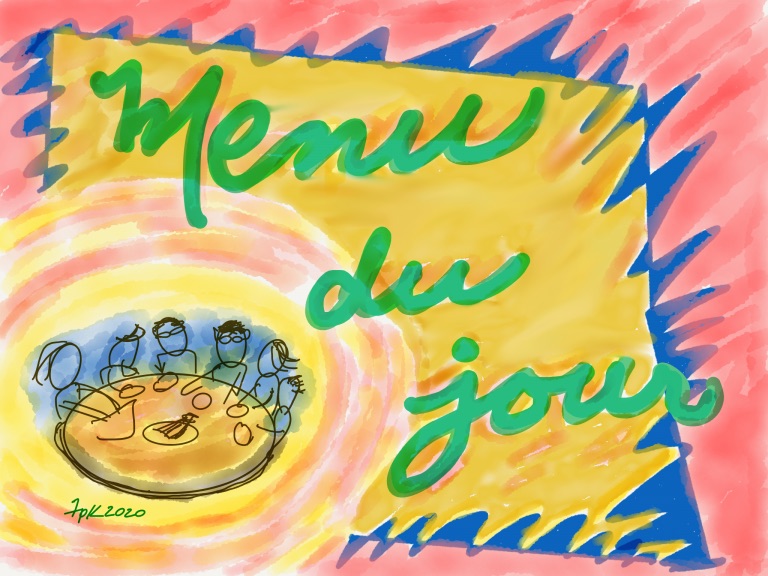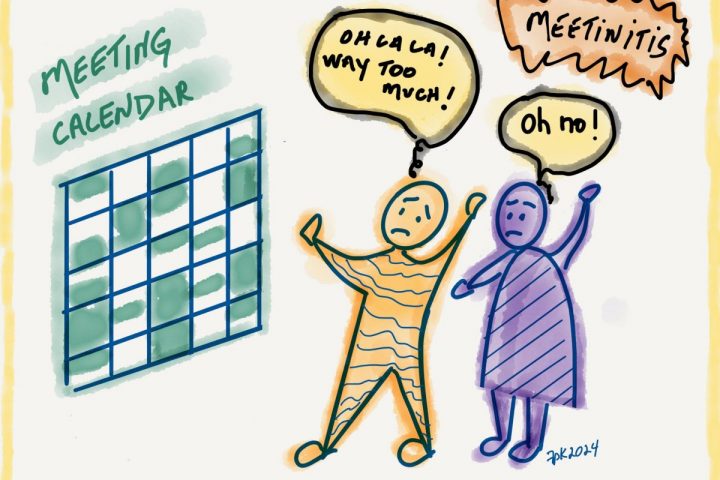 A typical conversation around our dinner table among our four teenagers: “Can I have the car tonight?” “My teacher is the worst!” “You’ll never believe what happened to me today!” My clan around me, sharing a meal together after a busy day, I felt fulfilled. Amidst the chit-chat, our second son Jeremy says “I’ll stay to eat the salad, then I’ll leave. I don’t want to eat that meat stew!”
A typical conversation around our dinner table among our four teenagers: “Can I have the car tonight?” “My teacher is the worst!” “You’ll never believe what happened to me today!” My clan around me, sharing a meal together after a busy day, I felt fulfilled. Amidst the chit-chat, our second son Jeremy says “I’ll stay to eat the salad, then I’ll leave. I don’t want to eat that meat stew!”
Shocked, I said “Come on Jeremy! You can’t mean that, you know how important family time is.” Jeremy sighed “Mom, I’ve been thinking about becoming a vegetarian. I’ve been reading about it and it’s making sense to me. And you know I never liked meat much.” While this was true, it wasn’t the meat piece that I was having trouble swallowing.
Inhaling deeply, I thought about the training I was taking on consent decision-making. How I could turn this into a win-win? I took a chance, asking the family if they would humour me by trying an experiment. The teenagers rolled their eyes in unison; however, no one objected. There was hope, I thought, as I explained the process.
“Jeremy will present his idea of being excused from family dinners and being a vegetarian. Everyone will get a chance to ask questions in a round, one at a time, to clarify the idea. We will then express our reactions to the idea in another round, sharing what we think. We’ll then do a consent round where we say either, yes – we can live with it or no – we have an objection.” Everyone seemed ready.
Questions flowed and Jeremy answered them: “What does a vegetarian eat?” “Are you going to be a vegetarian for the rest of your life?” “Are your friends vegetarian too?” Feeling clear, we listened to each other’s reactions. “It’s hard for me to imagine, I’m a meat & potatoes guy” said the first. “It doesn’t matter to me” said the second and “Now I know why you eat so many sunflower seeds!” said another. “I’m sad,” I said, “because this changes our tradition.” “I’ll miss your stories,” said my husband.
I facilitated a consent round. “No objection” came from my husband and two children. The youngest did have an objection: “I don’t like the idea of having an empty chair at the table, it’s not right.” It was my turn, and I also had an objection: “This proposal threatens the quality of our family connection, and the family bonding we get from sharing meals together.”
Now the job was to resolve objections. Suddenly, I felt scared and vulnerable. The issue was close to my heart, it mattered. With unease and tension in the air, I took another deep breath. “OK family, what are we going to do?”
“Well,” said the oldest “we all like spaghetti. Instead of having it once in a while, why not have it regularly, on Wednesdays.” Jeremy jumped in, “With a meatless sauce. I promise to show up!”. “That’s doable!” I said. My husband looked at me as I added “and for the other nights of the week, I’ll be sure to have a vegetable side dish and a green salad.”
The energy shifted around the table as Jeremy nonchalantly presented his revised proposal. “The weekly menu will include a vegetarian meal every Wednesday, let’s call it ‘Spaghetti Night,’ and we will all show up for that.”
We were smiling as I asked for objections. Everyone shook their heads as the youngest piped up “Remember Jeremy, there’s always veggies and salad the other nights!” Jeremy chuckled. “Right” he added, “so I’ll show up the other nights to check the veggies and salad!”
I was surprised and relieved. It worked! With this simple process, together we found a practical and fair solution to meet all our needs. We accommodated Jeremy, everyone was heard, and I knew I could count on the whole family being together at least once a week.
Establishing spaghetti night laid a foundation which we have used in facing issues as a family. It was a springboard for me becoming a sociocracy consultant. It also showed me the value in hearing everyone’s views and that I don’t need to be the mother telling my children what to do.
Sadly, Jeremy is no longer with us. Spaghetti nights live on, however. They are a family tradition, keeping Jeremy present in our hearts!
Consent decision-making is one of three principles that underlie the Sociocratic Circle Method. You can learn more through our webinars and courses. Or contact us for a free consultation.
 A founding member of The Sociocracy Consulting Group, Francine Proulx-Kenzle’s vision is a world in which all voices are heard with respect and candor, and where decisions are made collaboratively to contribute to better working and living environments.
A founding member of The Sociocracy Consulting Group, Francine Proulx-Kenzle’s vision is a world in which all voices are heard with respect and candor, and where decisions are made collaboratively to contribute to better working and living environments.



